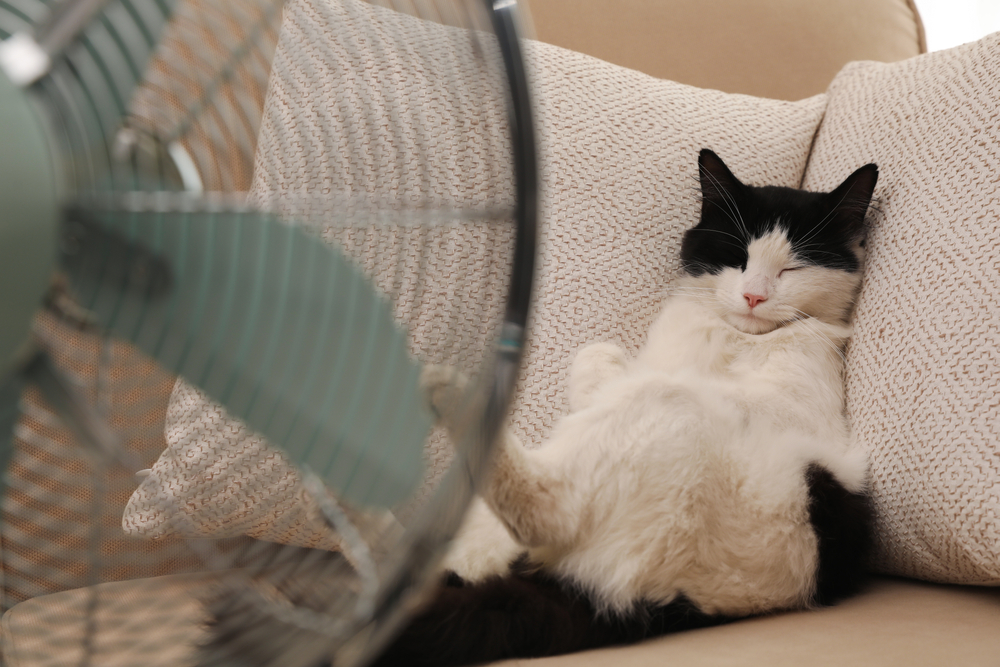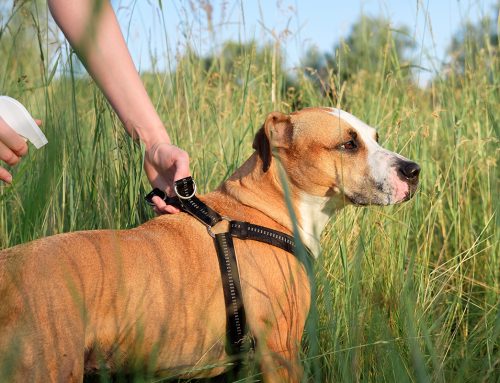Summer is a season of fun and adventure, not just for you but also for your furry companion. Beaches and hiking trails are popular destinations for pet owners who want to enjoy the sun and fresh air with their pets. Our Aloha Veterinary Hospital team encourages you to prioritize your pet’s safety to ensure these outings are enjoyable and hazard-free. Follow our tips to learn how to keep your four-legged friend safe this summer.
Summer safety tips for pets
With this season’s hot days and intense ultraviolet (UV) rays, summer poses many hazards to cats and dogs, especially when they are outdoors much of the time. Pets are susceptible to heatstroke, a dangerous condition that can be fatal if left untreated. When spending time outdoors with your furry friend, take the following precautions:
- Maintain hydration — Keeping your pet hydrated is always important, especially during the hot summer months. Always carry fresh water and a portable bowl for your pet any time the two of you go outdoors, and place several bowls of fresh water around the house. Pets can quickly become dehydrated, especially when active during hot weather. Pets’ dehydration signs include excessive panting, dry gums, and lethargy. Ensure your pet has access to water at all times, and encourage them to drink regularly.
- Provide sun protection — Pets, particularly those with short or light-colored fur, can get sunburned. Apply pet-safe sunscreen to areas with less fur such as the nose, ears, and belly. Keep your pet in shaded areas as much as possible to prevent them from overheating and getting sunburned.
- Protect their paws — Your pet’s paw pads can be injured or seriously burned on hot sand, concrete, and asphalt. Test the ground temperature by placing your hand on the surface for a few seconds. If it’s too hot for your hand, it’s too hot for your pet’s paws. Consider outfitting your dog in booties or walking your pet during the cooler times of the day.
- Use parasite prevention — Summer is the peak season for fleas, ticks, and mosquitoes. Ensure you maintain your pet’s parasite preventives that our Aloha Veterinary Hospital veterinarian has prescribed. By providing your pet with effective prevention, you can protect them from the diseases these pests carry. Regularly check your pet for parasites, especially after spending time outdoors.
- Recognize heatstroke signs — Heatstroke is life-threatening when a pet’s internal body temperature rises to 105 degrees and higher. Pets’ heatstroke signs include persistent panting, drooling, vomiting, diarrhea, lethargy, red tongue and gums, and disorientation. If your pet exhibits any of these heatstroke signs, immediately move them to a cool area, provide them with tepid—not cold—water, and call our Aloha Veterinary Hospital team for assistance.
Water safety for pets

During the dog days of summer, nothing is better than spending time by a beautiful lake or inviting beach. When planning a trip by the water, consider the following water safety tips to safeguard your four-legged friend:
- Ensuring your pet can swim — Not all pets are natural swimmers, and some breeds, such as brachycephalic—flat-faced, short-snout—are ill-suited for swimming. Before heading to the beach, lake, or pool, ensure your pet knows how to swim. If your pet is new to water, introduce them gradually in a shallow area before allowing them to venture into deeper water.
- Supervising — Always supervise your pet when near or in the water. Even strong swimmers can encounter difficulties such as strong currents, waves, or fatigue. Keep an eye on your pet at all times to maintain their comfort and safety.
- Outfitting your pet in a life jacket — Outfit your pet in a well-fitted life jacket, especially if your four-legged friend is not a strong swimmer or if the water conditions are unpredictable. A life preserver can provide buoyancy, and their bright colors make spotting your pet in the water easier.
- Going to safe swimming areas — Choose swimming areas that are typically safe for pets. Avoid areas with strong currents, large waves, or heavy boat traffic. Check for local regulations, as some beaches may have specific areas designated for pets.
- Bringing drinking water — Discourage your pet from drinking salt water, which can lead to dehydration and salt poisoning. Additionally, never allow your pet to drink from standing bodies of water, including puddles, ditches, and ponds. Several pathogens in these water sources can cause pets to experience severe gastrointestinal (GI) distress. Always carry plenty of fresh bottled water to keep your pet hydrated.
Summer outings can be a delightful experience for both you and your pet, provided you take the necessary precautions to ensure their safety. By following these tips for hydration, sun protection, paw care, and water safety, you can help your pet enjoy a fun, safe, and healthy summer season. Contact our Aloha Veterinary Hospital team if your pet requires essential summer care, such as parasite prevention.







Leave A Comment